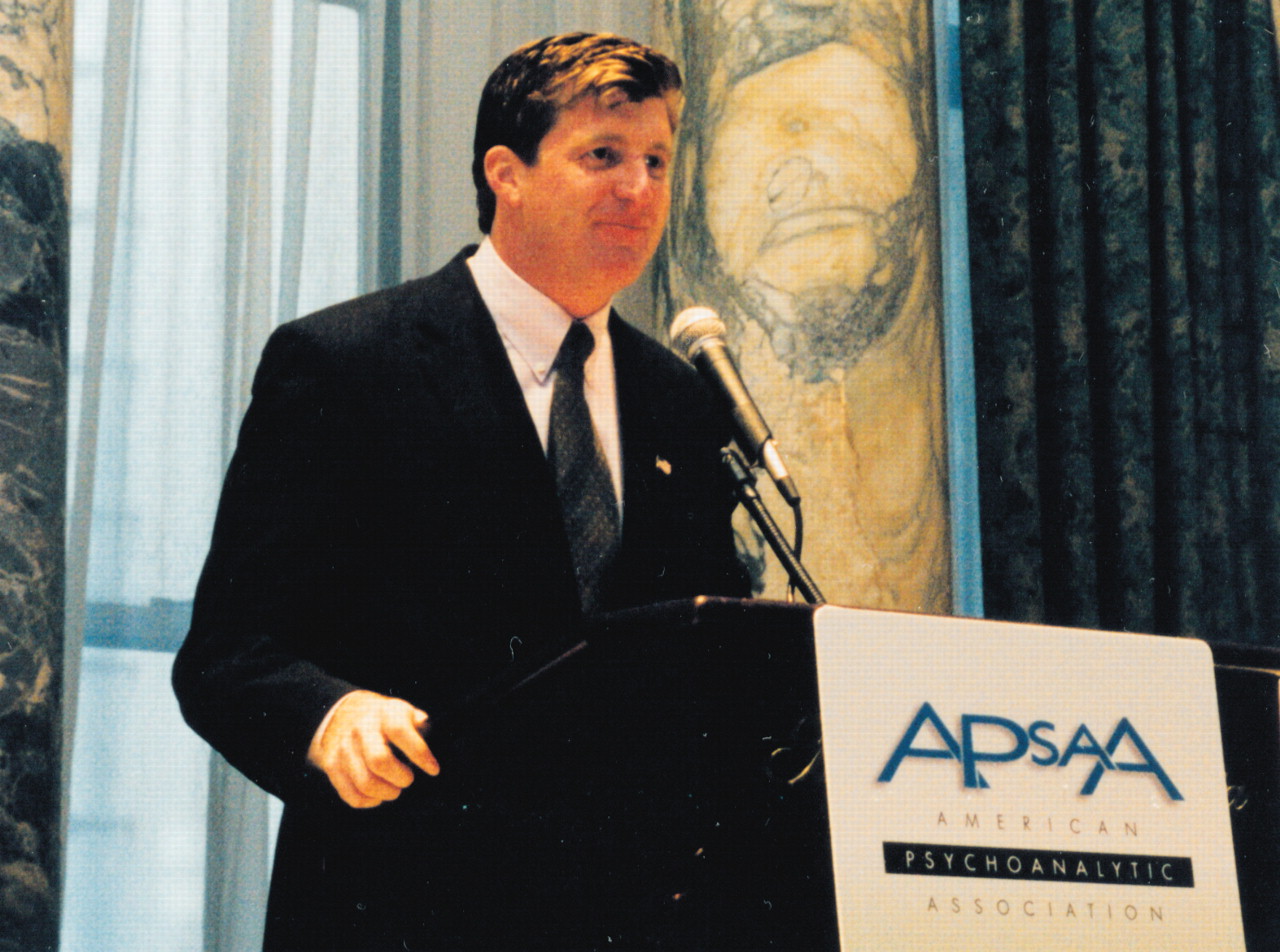Analysts Honor Rep. Kennedy’s Advocacy for Mentally Ill People
It only takes a minute and then you become aware of it—the similarity in facial expression between him and his father, Sen. Ted Kennedy (D-Mass.), and the irrepressible Kennedy charm. Yes, he’s the son of Ted Kennedy and a Congressman in his own right, from Rhode Island.

Rep. Patrick Kennedy addresses members of the American Psychoanalytic Association in New York City in January after being presented its Presidential Award.
In conjunction with receiving the award, Kennedy gave a speech in which he talked about his personal experiences with mental illness, as well as about some of his efforts to help those suffering from mental illness.
For instance, Kennedy explained that he got into the business of trying to help people with mental illness because of his family’s long-time efforts in this arena—his Aunt Eunice’s Special Olympics for the mentally and physically challenged being one example—but also because of his own bouts of depression.
Yes, Kennedy said, he knew what it was like to suffer stigma because of mental illness. Once he marched in a Fourth of July parade, and someone called out, “Have you taken your medication yet?”
“It was horrifying,” he admitted.
He also addressed a comment that Deborah Peel, M.D., of Austin, Tex., had made in introducing him to her fellow analysts at the award ceremony. She had referred to him as a lead sponsor of mental health parity legislation in the House. Undoubtedly the analysts present wondered how someone could find himself in that position at the young age of 35, but he has indeed been playing a pivotal role.
“I mean, that’s scary!” he exclaimed. “That says something about the state of mental health in the United States.”
It also underscores how urgent it is that people write to their members of Congress and demand that they pass mental health parity legislation, he said—and that includes psychoanalysts, he stressed. “We are not going to be successful without you,” he declared.
When mental health parity finally becomes a reality, he added, “we are going to call it the Paul Wellstone Parity Act for All Americans.” The recently deceased senator had a “sense of outrage” about how unfairly mentally ill Americans are treated, he said, and a parity law would help end much of that stigma.
In addition to fighting for parity, Kennedy said, he has introduced a bill to get more medical school graduates to enter child psychiatry.—in other words, to help meet the urgent need for more skilled professionals to care for American children in nedd of mental health care. “Clearly, we need to do so many things to repair the [American health care] system,” he declared.
And because he is on the House appropriations committee that funds the National Institute of Mental Health, he will be working to increase the amount of money that it gets, he added. Currently, less than $5 out of every $100 for medical research goes toward mental health studies.
Information on Kennedy’s positions on mental health issues can be found at his Web site at www.house.gov/patrickkennedy/press_issue.html. ▪



